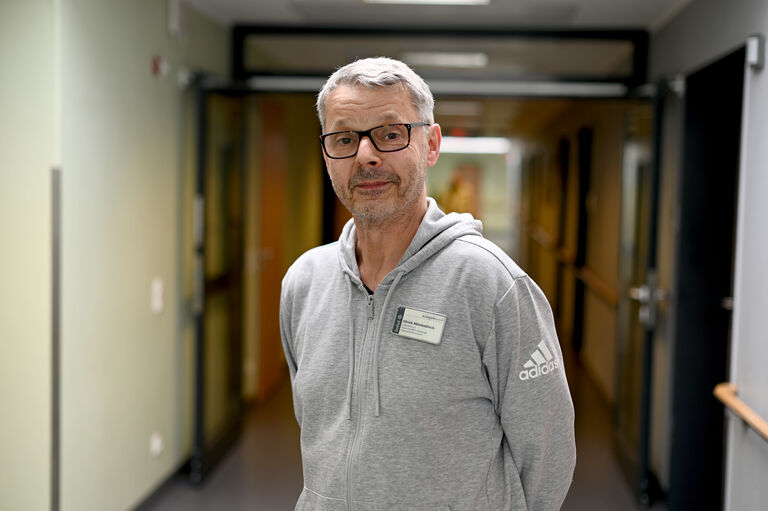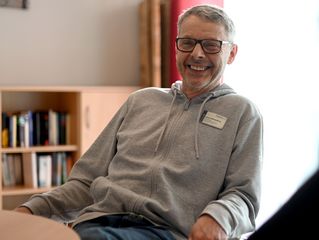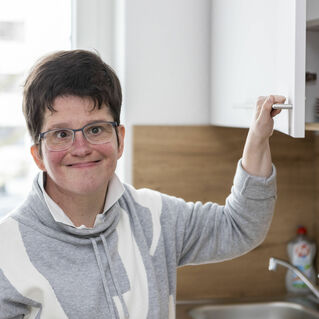Hands-on, committed, full of drive for change - this is how those who have worked with him would probably describe Ulrich Mönkedieck. Yet he says of himself: "I'm the laziest person in the world." He wants to make things easy for himself, which is why he does things directly, he explains. The nursing manager of psychiatric ward A3 at Bethel Protestant Hospital is pragmatic - something he has done well for 45 years of his career at Bethel.
When the then untrained nursing assistant Ulrich Mönkedieck started his career at the end of the 1970s after completing his civilian service at Bethel, many things were still different in the German psychiatric landscape. "There were colleagues who clattered around the corridor with a huge bunch of keys and saw the carers as ward attendants," he recalls. Patients were locked in the "parlour" for days on end and left to their own devices. "I got to know the classic closed ward." He liked the nursing profession, but the attitude towards patients less so. Even then, his idea of what psychiatric care should look like was different.










